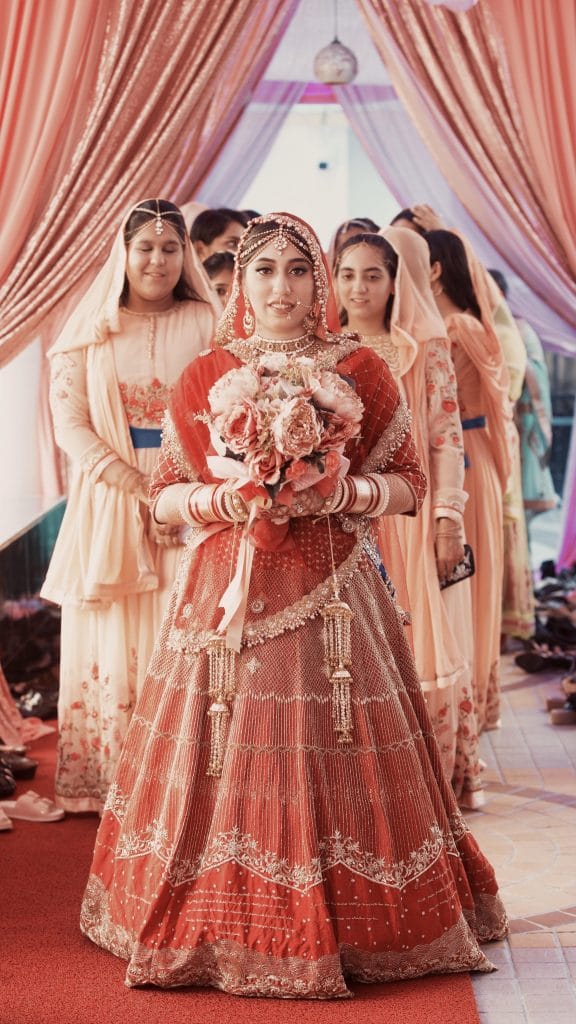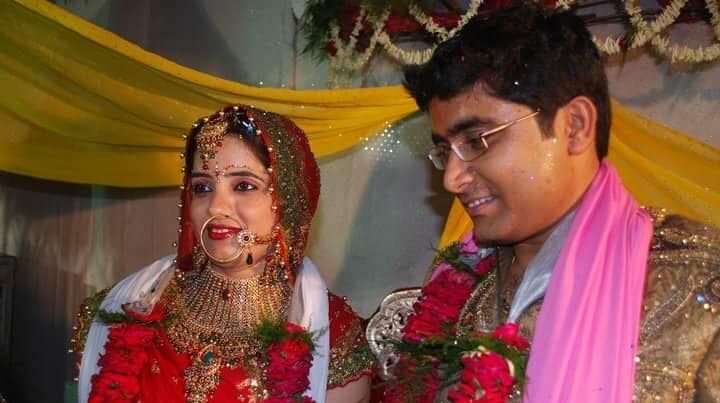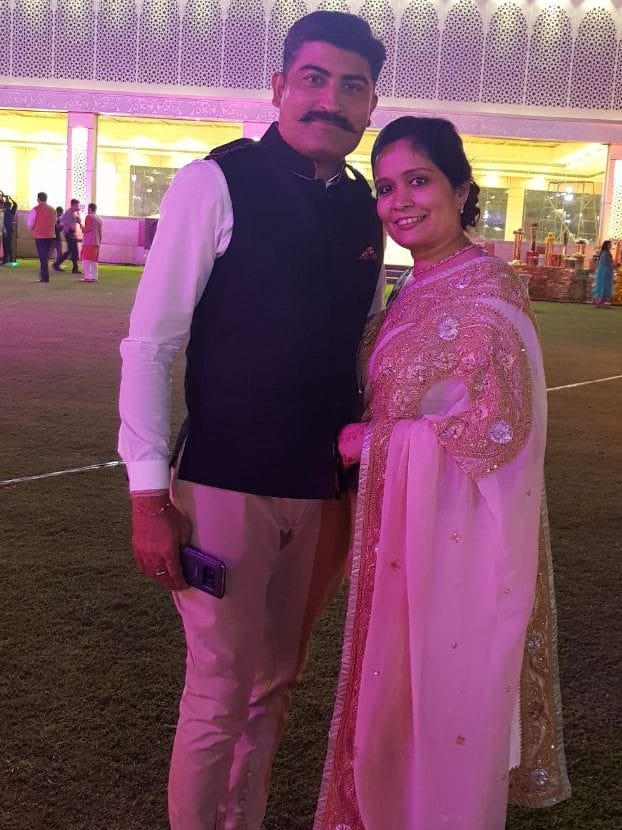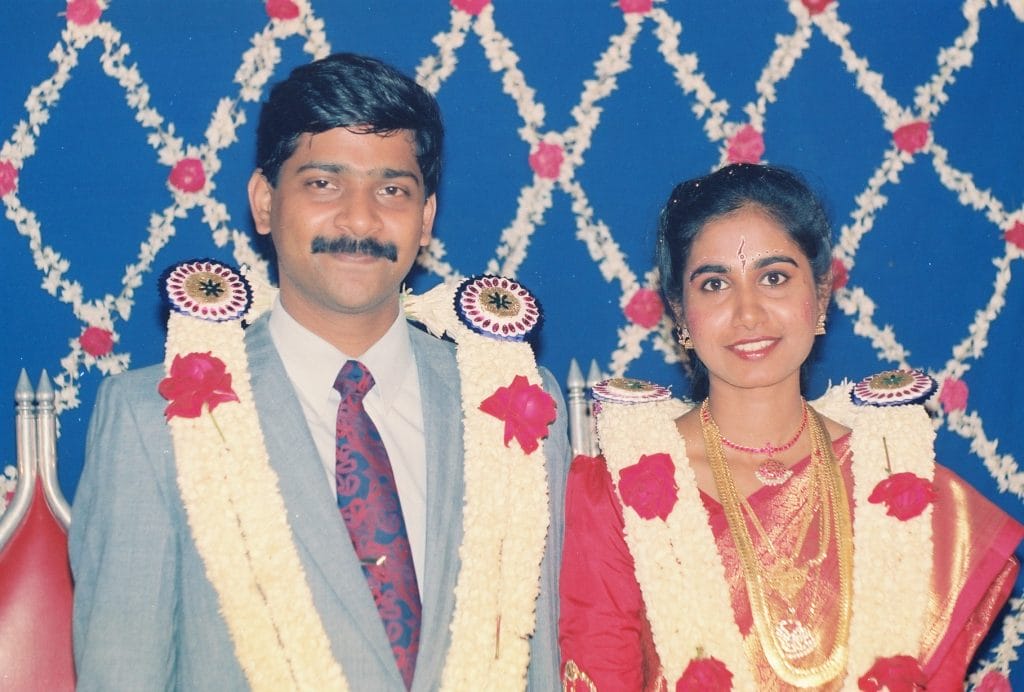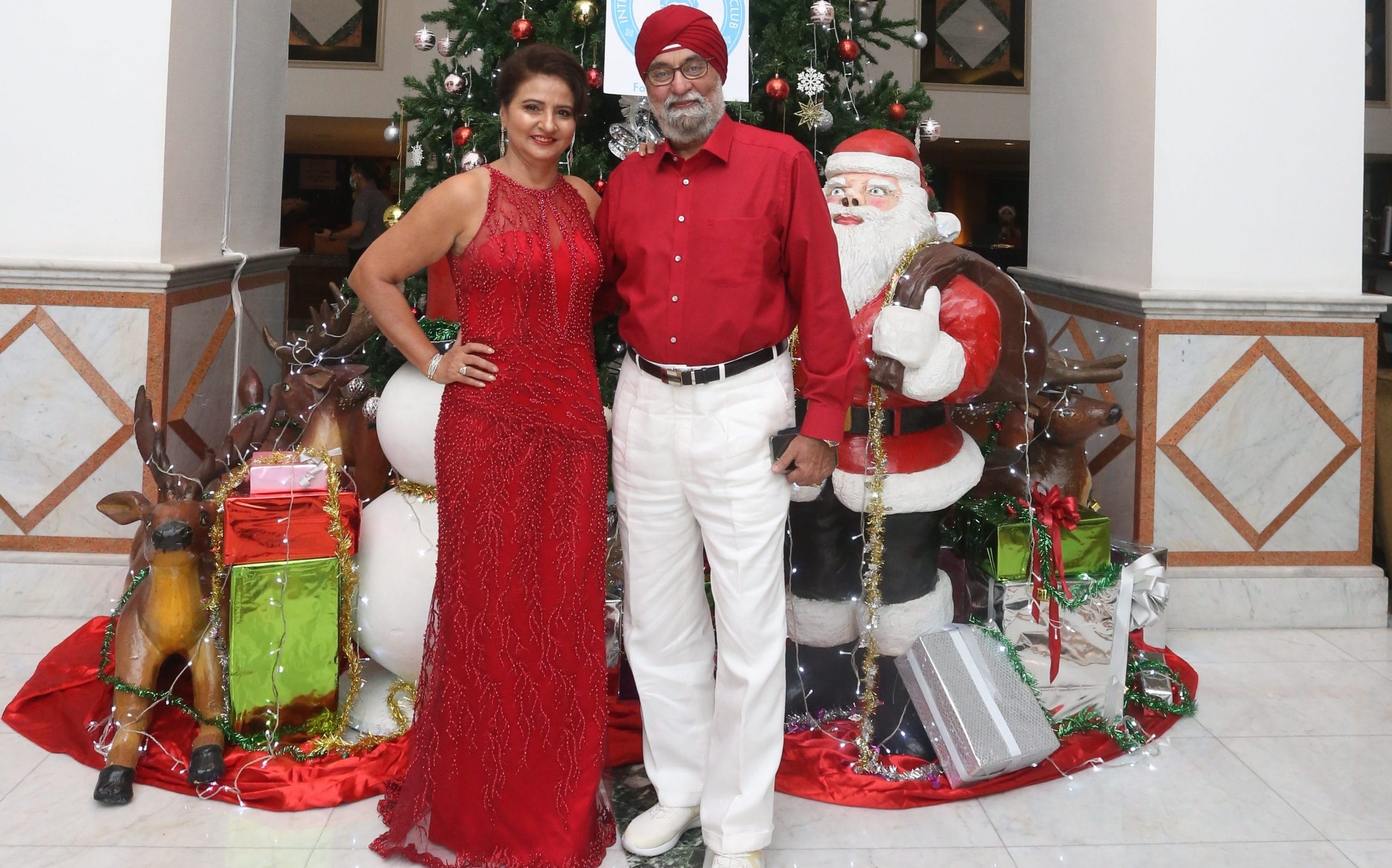Things I wish I knew before marriage.
By Shradha Aswani
The best way to segregate good advice from the grime of generalized gyan (inconsequential lecturing), is nuance. This is especially true when you are looking to make a decision as massive as choosing a life-partner.
But what do you do when single friends who have no idea about the marital ecosystem bail on you, and you’re frustrated by relatives who keep rubbing narrow, short-sighted beliefs onto your subconscious?
You rely on community.
Empowered by my parents to make my own list of priorities; I set out to talk to community members who had unique and valuable insights about marriage and what it takes to get it right. Or at least as right as it gets!
RASMEET ‘RAS’ BAJAJ
Married for 4 years
Ras, a 25-year-old Bangkokian, met her husband at the tender age of 17. The two met at a wedding and were in a long-distance relationship before they tied the knot four years ago and moved to Malaysia. Ras’s decision to marry young was born out of a simple thought that her husband got her to consider – when in a relationship, you could either end up with your partner for life, or break up. Since her husband and
she were both in a place where they wanted to be with each other forever, the question was not why, it was why not.
How do you look back at the decision of marrying young? Would you do anything differently if given a chance now?
I think meeting each other early on in life has given us a chance to grow together. For someone like me who is really career-driven, I am thankful that I got married before I started my career, since it would have been much harder to shift base and move countries with an already-established career.
What are the factors you considered before letting your partner into your life?
Firstly, they should be family-oriented. Also, since I am somebody who is spiritual and religious, I needed to find somebody whose values aligned with mine. I wanted someone who would make my life fun. So, the first
thing that attracted me to my husband was his sense of humour, and then everything else about him also just aligned with what I was looking for in a partner.
How do you think the two of you have evolved as couple over the years? Do you still have the fights that you had when you first started dating?
There are still fights of course, but I think they are less dramatic now. I think learning how to have a mature argument is such a big factor in a relationship. When we were younger the arguments would blow up and
escalate really quickly, but now we have learnt how to communicate better, and in turn fight better.
What are some of the things that you did not anticipate about marriage? How have you coped with those challenges?
I think the reality of moving countries, not just emotionally, but in terms of legality. That was something no one prepared me for. It is crazy how much you have to do just to stay in the country. Even though my husband is a citizen of Malaysia, every time we went to immigration, they kept requesting an additional set of documents and it took us over six months to streamline everything the first time around. I think I still
have PTSD from the first time I had to go through the drill and the process of renewing my visa still gives me anxiety.
What is the one thing you wish you knew before you got married?
I wish someone told me about the exhaustive legal reality of the migration process. Going through life together with my husband, in all its different chapters, is something I love and look forward to; but just knowing about the above would have given me a chance to prepare better.
KIRAN KANJANI AND ROHIT TEKWANI
Married for 12 years
In the area that Kiran grew up in, back in India, male dominance in marriages was extremely common. While her dad gave utmost respect and value to her mother, he was mocked as a wife’s man. Thus, it was only natural for to value independence, respect, and equality in relationships over anything else; which formed the basis of her marriage to Rohit Tekwani. She was looking for a best friend when she set out to find a partner, and in Rohit, Kiran found a buddy she could share everything with – from food choices and lifestyle, to their preference of social groups and sleeping habits.
What made you sure that Rohit was the right one for you?
Rohit and I saw each other for the first time at a wedding and we became long-distance friends. Late night phone calls despite different time-zones, writing letters/cards, secret meetings, and sending gifts are memories of our courtship period that we cherish. Without the presence of digital media and smartphones, our long-distance relationship across international boundaries was difficult to maintain initially. However,
as time passed, we became a source of motivation and inspiration for each other. This phase was the best as we didn’t have to report to each other all the time, which was prominent in many other relationships
around me.
I knew he was the man I could spend my entire life with, without losing an identity of my own, because he genuinely believed in me and my career goals. It didn’t take me very long to be sure, though the other
arrangements and getting the families together on this took some time.
After marriage, what were the unexpected challenges that came your way?
A very funny yet challenging situation was that we were so used to the distance that it took us 6-7 months to be able to talk to each other face to face. We had to go to different rooms and talk to each other on the phone! Apart from that, I have OCPD – for example, the cushion on the sofa has to be tilted in the right angle and placed at the perfect position; which is totally beyond his comprehension [laughs]. But from taking a firm stand on our relationship to standing in complete support of each other even today, I think we have been able to sail well on our journey till now.
What is the one thing you wish you knew before you got married?
The phrase ‘opposites attract’ is so often used, however, I have realised that the more you are like each other, the more this journey becomes easier. If two people are polar opposites, most of their life will go towards making adjustments for each other, which may seem exciting at first, but after a few years, it may get over whelming. Maybe the opposite traits attract us initially, but what keeps us in love forever is our similarities!
MRIDULA GUPTA AND MANISH GUPTA
Married for 23 years
Mridula ‘Anu’ Gupta and Manish Gupta, ages 47 and 50 respectively, have been married for 23 years now. Anu is second-generation Thai-Indian, while Manish moved to Bangkok after their marriage. Their marriage was arranged by their families who knew each other, and as was tradition, they were expected to meet each other once and decide whether or not they wanted to marry each other. Luckily for them, the decision turned out to be in their favour.
How did you arrive at the decision of marrying each other, specifically since you just had one meeting to decide?
Manish:What I saw when I visited Anu’s house was that she was the central figure of the family. Apart from that, she had several friends. Not just friends you chill or kill time with, but deep strong bonds. That is what made me go – iss bandi mein kuch na kuch baat toh hai (there must be something special about this person). Honestly, conversations are not enough basis to make a judgment. But if you figure out what a person’s core is, then you can decide whether you will be able to live with the person or not. How they look, what they wear, or how successful they are; these all matter the least. If you work hard, you are bound to become successful today or tomorrow. But the core of a person doesn’t change; their DNA remains the same.
Anu: Knowing me and the background we were in, my parents thought that it would be hard for me to live in India, so they were looking for someone who was based abroad. While Manish was working in Hong Kong at that point, he wasn’t sure where he was going to end up settling. But his confidence stood out for us. We could trust that he was hard working and that he would get things done. That reassured us of the fact that no matter where he ended up living or working, he would responsibly take care of his family.
Tell us about your courtship. What are the things about each other that made you feel secure about your decision?
Manish: Even during our courtship, we did not meet or speak a lot. These days, when people first get to know each other, likes and dislikes are often spoken about. But I think what is more important is finding out what works for a person and what doesn’t by being invested in them. That is how you discover them. For example, we never spoke about the fact that we would settle here in Bangkok before marriage. I just knew that since her family is here, she would be more comfortable here.
Anu: It is important to not restrict yourself to the person’s present alone as well. Their drive and where they want to go, matters more.
Manish: It is important for drives to match. If one is passionate, while the other is laid back; or vice-versa, then you won’t be able to journey together in the long run.
What are the points of friction between both of you that you anticipated before marriage? How do you deal with them?
Anu: No one thinks about the friction in the beginning. We only think about the good parts. Of course, there is love and care, but there is also baggage that comes in the picture when reality hits you. You witness each other’s mood swings, each other’s reactions, and sometimes they are not all that pleasant. That is where your commitment to each other shows up. I believe that in a marriage, communication is important, but silence and space are equally important.
Manish: When you are married for too long, what happens is that you tend to try and ‘improve’ the other person. You are always correcting them because you believe that something is better for their own good.
This happened for a while in the early years of our relationship. But over time, as we matured, we realised that it is not about pushing the person to become perfect. No one is perfect. It is about loving someone with their imperfections. It is about doing the things that you think they can’t, instead of trying to teach them how to.
What are your favourite parts about being married? What do you think keeps your relationship going?
Anu: For us, it is the family we have built together. We can talk to our children about anything and everything. My daughter tells us that she feels like our marriage counsellor. My son, who is 15 now, often jokes about when he would be allowed to have his first girlfriend.
Manish: Coming back home to my family is indeed the part of the day I look forward to the most. Our dinner time conversations are more interesting than my conversations with any other friends or adults.
What is the one thing you would like to tell people who are considering marriage now?
Manish: I think it is important to know that the path that you undertake might not be easy. It is one thing to walk alone, and another to move ahead with a family. Sabko saath lekar chalna padta hai (you need to be considerate of everybody). And the thing is that everyone can think about themselves. When you think about the other person, adapt as per their needs, and do so out of love, it makes for a lasting relationship.
JAYANTHI AND SUKUMARAN
Married for 28 years
When Sukumaran and Jayanthi met in an informal meeting set up by their parents, they were both aware that the exchange was to evaluate the possibility of being life partners. Both of them were sceptical about the decision and their conversation was brief, mostly revolving around basic details about themselves and information about common friends they had. However, the two walked out of the meeting knowing that there was something about the match that felt right. Their marriage now nears three decades, and they are proud parents of two.
What are the things about marriage that you enjoy the most?
Jayanthi: Having someone who loves you just the way you are is one of the happiest things in one’s life. Being there for and supporting each other has helped strengthen our relationship.
Sukumaran: I think I am extremely dependent on my wife. I can’t live without looking at her face at least once every day. She recently visited her father who was unwell and had to stay for more than a month; that was the longest time we lived away from one another.
Tell us about one fight that you have had over and over in the time that you have been married. How have you managed to make peace with it?
Sukumaran: While I try to live in the present moment and hardly notice patterns to pick fights about, my wife remembers details from the last hour, last week, last month, and sometimes from even 10 years ago [laughs]! I think one small fight that resurfaces time and again is when I get calls from my family, and they accidentally forget to inquire about Jayanti. She obviously feels bad at that instant and pulls away for a while, but things become normal soon after.
Jayanti: Occasionally, friction does happen due to family issues, but I try to adjust and look back at all the good parts of our relationship. That helps me come out of the hurt. Also, what I do now is that I talk
to his family directly. When I make the call, they don’t have a chance to miss me out, so it is win-win for both parties.
Give us one tip that’s useful in sustaining a marriage.
Sukumaran: Put time and effort into understanding your partner’s feelings, and develop healthy communication habits around this! Also never forget birthdays and anniversaries! [laughs]
Jayanthi: I think commitment is extremely important. It seems more difficult for the younger generation to commit to one another with all the complexities and demands of modern life. Without commitment, it is impossible to sustain anything, let alone a marriage. And while you are choosing a life partner, you should do it only if you are ready to marry the family, not just the person.
MANJIT WALIA AND SATVINDER JIT SINGH
Married for 41 years
Manjit Walia, born and raised in Indonesia, married Satvinder Jit Singh, her first cousin based in Singapore, in 1981. In her own words, “love marriage has no generation.” Even in the time that she was getting married, almost four decades ago, she knew a lot of classmates and schoolmates who married out of love. In her head, hers was a love marriage, but for her husband, the narrative was different.
What are your memories of the phase before you tied the knot? How did the marriage come along?
My mum and my husband’s mother are sisters and in Sikhism, you are allowed to marry cousins from your mother’s side. Growing up, we were not connected in the way that children are connected these days. My masi spoke to my husband to consider the idea of marrying me and sent him to Indonesia on a holiday so that he could meet me and figure out if we got along. We spent roughly two weeks together and clicked. We didn’t really meet after that since he went off to study in Canada, but we exchanged a lot of letters and started developing a relationship which went on for about three years. I still have over three files of these cards and letters stored with me [smiles].
Finally, before he graduated, he told his parents that he wanted to marry me. I visited Singapore after that, and that trip kind of confirmed that this is the person I want to be with. So, if you ask me whether it was a
love marriage or an arranged marriage, I always say that from my side it was love, but he always says that it was his mother who arranged it.
What are your favourite parts of being married?
I think the past few years, after my kids have moved out of the house, are the parts of being married that I have enjoyed the most. My husband and I have learnt how to do our own thing. He watches his sports; I watch my dramas. We go out together, and then there are times when I go out for dinners while he is hanging out at home. My funda is that I don’t force, and I don’t like to be forced. We have just figured out a way to be around each other in peace.
Would you say then that compromise is the basis of marriage?
Absolutely. What else can you do? My father always said – ek chup, sau sukh; which means silence can lead to a lot of happiness, and I have learnt how to practice that. When my husband is angry or upset, I just turn quiet and wait for the wave to pass. First, I don’t trigger a disagreement, and then if it does happen, I don’t prolong it. It doesn’t matter whether I am wrong or not. And that has really helped us. I wouldn’t say that we don’t quarrel at all, but there is nothing we can’t control.
What is the one piece of advice you would give to the ones you are looking to get married right now?
I would say that it is extremely important to know the character of a person. With the number of divorces going on, even after couples have dated each other for five, six years, I can understand why people would want to live in. As Indians, it goes against our principles, but I understand why the generation today insists on it.
The tolerance level of the generation today is different from ours. In my time, I put up with a lot of things that were not in my favour. My husband’s family is much more conservative than mine, and in the beginning of my marriage when we lived with them, there were a lot of things they said that really bothered me. But I did not make a big deal out of it.
I never said I am packing my bags and leaving. And I think I am getting my due for it now. I get to do what I like without any questions. So, try to know a person inside out before you get them into your life, and
then if you love the person, learn how to tolerate.



